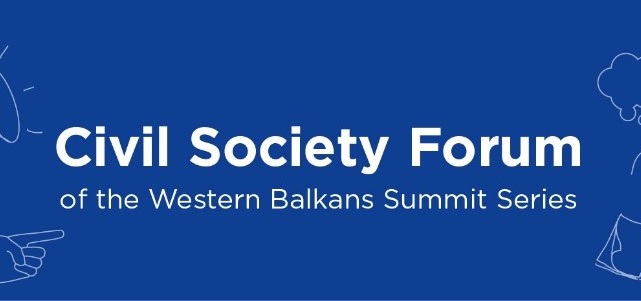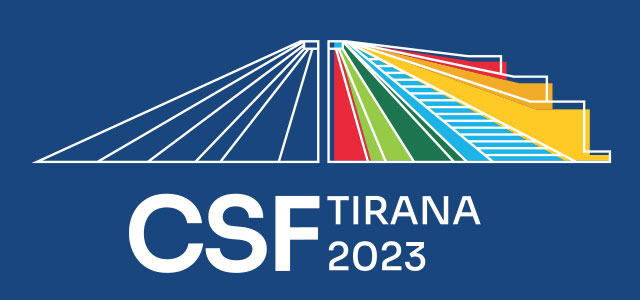From Stereotypes Towards a New Realism in the Balkans – On Civil Society in the Run-up to the Western Balkans Summit

Civil society plays a key role as a democratic corrective force in all societies that undergo a transition from an authoritarian regime to a liberal democracy. It aims to help develop and sustainably embed a democratic political culture, thus preventing countries from lapsing back into authoritarian rule. Against this background, it is easier to understand why so much – and generally too much – is expected of civil society as a cure-all. In order to get a realistic picture of civil society, its role and potential as well as its limitations – especially in the Balkans –, it is first of all essential to move away from over-simplified images of this phenomenon and hopes of salvation. Particularly over the past few years, we have witnessed more and more disillusionment with democracy in several post-socialist countries. Authoritarian tendencies in governing structures and in society are becoming ever stronger and considerably more visible: the path that leads to a stable democratic setup is long; it comes with setbacks and crises and is by no means linear.
What role does civil society play in the Balkans? Research into civil society shows us that in areas with weak or dysfunctional forms of government, where issues of sovereignty and imminent problems such as unemployment, poor social conditions and poverty prevail, civil society takes a back seat. In the Balkans, the nationalistic madness of the 1990s dealt the final blow to the citizens’ civil self-identity. This final blow was all the more tragic as in Yugoslavian state socialism, the phenomenon of “citizenship” was merely derived from its affiliation with the notionally Marxist working class that prevailed at that time. During the second half of the 20th century, it was hard to find a critical understanding of citizenship anywhere in the Balkans, and – if it did exist at all – it was only within confined urban spaces. An integral part of this was the ex-Yugoslavian popular culture, whose development was on a par with the American and European trends of the 1970s and 1980s and which served as an important civil and cultural “window to the world” for the peoples of South-Eastern Europe. Regrettably, the nationalistic madness of the 1990s heavily poisoned even these positive narratives and trends.
In the Balkans, evidence also suggests that the mere existence of an NGO on paper is not synonymous with a functioning civil society. The explosive growth in the number of NGOs after the wars and the resulting “NGO-isation” of civil societies created an “NGO dog-eat-dog world”. The battles for the resources of the increasingly professionalised NGOs and its elites were by no means fought in a “civil society” fashion. In this professionalised NGO universe, civil society embedded itself into a pseudo-normal or banal parallel world, in the midst of a deep crisis afflicting these societies. The lack of tangible results, however, directly damaged the image of the NGO-dominated civil society in the eyes of the wider public. As disillusionment with democracy and a post-democratic depression took hold across the Balkans over the past few years, a certain civil-society monotony emerged as an integral part of this democratic depression.
The past few years, however, have seen a new dimension and a new quality. The social protests, most of which we witnessed recently, are the most important development of democratic politics in the region in the past two decades. Part of the process of growing up and emancipation of civil societies in the Balkans is the action taken by the citizens of many states in the region, who are vociferously telling irresponsible politicians that they will no longer tolerate political injustices, taking to the streets to protest against elite-dominated and corrupt, yet seemingly democratic regimes, exposing problems and those responsible for them and trying to combat them. The political establishment, however, is fighting back against these new social movements with all its might. There are plenty of role models for authoritarian rulers, such as Putin or Erdogan, who only know the force of repression, the police and the deeply symbolic water cannons. When Gruevski allowed the police to use force against the protesters in Macedonia, this was nothing less than an authoritarian reaction to a movement whose criticism had attacked the heart of the regime. The events in Bosnia in 2014 or Skopje in 2015 are just the beginning of a process of critically questioning and challenging bad politics in the Balkans, which can ultimately lead to more freedom and a better life in the region.
Support from the outside will have a decisive impact on the success of these new movements. Instead of viewing the protests as a potential source of insecurity and destabilisation of the region, the EU should, therefore, adopt an attitude of acceptance towards the social protest movements and “grassroots” civil society and view them as new actors, who should be listened to and supported. The fact that one central focus of the Western Balkans Summit in Vienna will also be on civil society is undoubtedly also a direct consequence of the protests in Bosnia and Macedonia. It is already a commonplace view that an active and accepted civil society is essential to ensuring the success of democratic politics in the long term. As a first step, the summit in Vienna will primarily aim to establish the actors of civil society and their viewpoints on burning questions as a normal and natural part of all future EU activities in the region. The goal is to clearly communicate to governments and many an authoritarian ruler in the region that their success will, above all, be measured in terms of their attitudes towards a civil society that is slowly becoming more confident and organised. The Vienna summit will have been a huge success if an increased awareness of civil society becomes an integral part of all political decision-making processes in the Balkans and in the EU.
